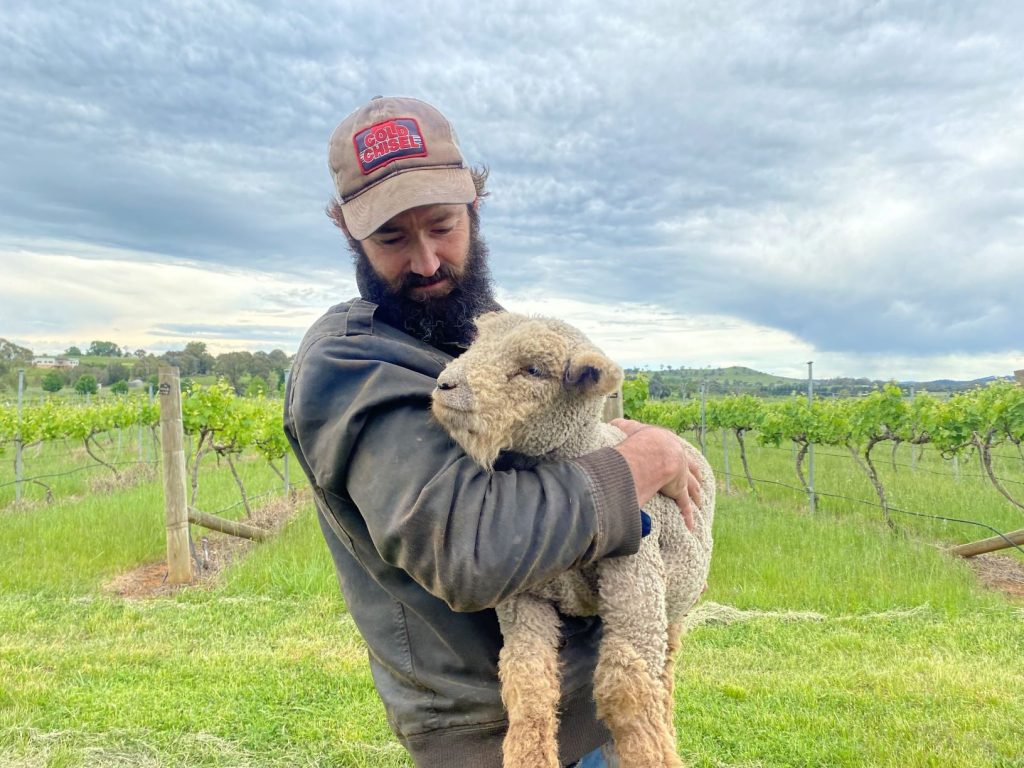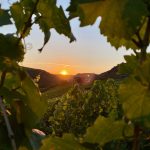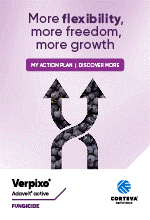Image: Babydoll sheep and viticulturist Ben Osborne
The Vintner’s Daughter recently acquired a team of Babydoll Southdown sheep to control grass among the vines and eliminate the use of herbicides in the vineyard.
Established by husband and wife team, Stephanie Helm and Ben Osborne, The Vintner’s Daughter at Murrumbateman in the Canberra District crafts small-batch wines from estate-grown grapes.
Helm and Osborne have, for some time, been looking for a low-cost alternative to herbicides suited to their small vineyard.
Babydoll sheep are known for their classic smile and are placid, short sheep derived from the Southdown breed.
They are too short to damage the vines and can graze most of the year in the vineyard. They also improve vineyard soil health by providing natural fertiliser and reducing the need for heavy machinery, which means less soil compaction and improved soil fertility and structure.
“Becoming sustainable as a small vineyard can be challenging. When we first decided to eliminate herbicides we looked at purchasing under-vine mowers and other machinery but this was too expensive for our small vineyard,” said Helm.
“We started researching and came across Babydoll sheep as a potential solution. We got in contact with a local breeder, Roogulli Farm, who were extremely supportive and provided us with lots of information to start our own flock.
“A small flock of Babydolls will save us money and time while also improving the health of the vineyard. In future years they may be able to provide us with an additional income stream as we can supply this rare breed to other vineyards.”
The Vintner’s Daughter has been pursuing a more sustainable and organic approach to winemaking and grapegrowing for some time. A 32kW solar system installed late last year provides financial as well as environmental benefits, supplying most of the winery’s daytime energy needs.
A weather station, new rainwater tanks and upgrade of the 30+ year old vineyard irrigation system significantly reduced water usage and helped maintain the vineyard’s water supplies through the drought.
Insecticides have already been eliminated in the vineyard by encouraging natural predatory insects as well as birds and bats with insectariums, tree plantings and nesting boxes.
“We’ve always been drawn to organic vineyard practices as they make a lot of sense both from an environmental and business perspective,” said Osborne, viticulturist at The Vintner’s Daughter.
“By creating a thriving ecosystem we reduce our own labour and input costs and create a more self-sustaining vineyard.”
“I’m looking forward to seeing the benefits in the winery of these new management practices – healthy vines means great fruit, which leads to great wine,” Helm added.
Are you a Daily Wine News subscriber? If not, click here to join our mailing list. It’s free!





















